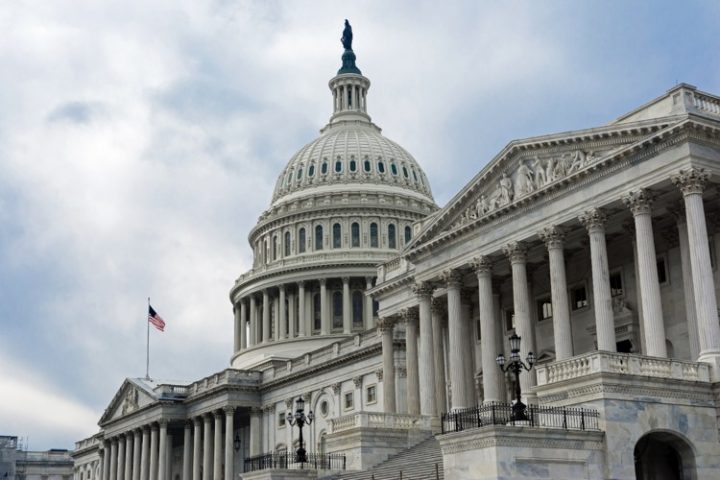
“Acting for the preservation of the Community, there can be but one Supreme Power, which is the Legislative, to which all the rest are and must be subordinate, yet the Legislative being only a Fiduciary Power to act for certain ends, there remains still in the People a Supreme Power to remove or alter the Legislative, when they find the Legislative act contrary to the trust reposed in them.” — John Locke, Second Treatise on Government, Section 149.
The week beginning July 16 was filled with impassioned contests among many of our most illustrious Founding Fathers. The general topic was the powers to be granted by the states to the legislative body that would be created in the new Constitution. There were as many opinions as there were delegates, and the debates were heated and historic.
After appearing to settle the issue of how representation would be apportioned among the states — an issue that came within moments of permanently adjourning the convention, sending the delegates home without having accomplished anything — the question occupying the minds and filling the minutes of the next few sweltering days in Philadelphia would be how much of the states’ lawmaking power should be ceded to the general legislature.
The board provision put before the assembled representatives of the 12 states who sent delegates to Philadelphia was “To enjoy the legislative rights vested in Congress by the Confederation, and moreover to legislate in all cases to which the separate states are incompetent or in which the harmony of the United States may be interrupted by the exercise of individual legislation.” Delegates immediately began deliberating over the definition of key words in that clause.
Pierce Butler of South Carolina — the man who proposed the secrecy rule at the outset of the convention — insisted that the definition of the word “incompetent” be cleared up.
“The vagueness of the terms render it impossible for any precise judgement to be formed,” he stated.
“The vagueness of the terms constitutes the propriety of them,” answered Nathaniel Gotham of Massachusetts. “We are now establishing general principles, to be extended hereafter into details which will be precise and explicit,” he added.
The vote on the proposal was split down the middle, with another fracture in the factions beginning to widen between those refusing to see the sovereignty of the states reduced, and those considering a congress possessed of more expansive power the best way to strengthen the union and prevent the partitioning of the states into several confederacies.
Roger Sherman was one of the most outspoken advocates of state sovereignty. The proposal may have been vague, but it was clear enough to alarm him at the possible contraction of the independence and power of the states. He stood, intending to put an instant stop to the proposed infringement by offering his own much less expansive extension of power to the federal legislature:
To make laws binding on the people of the United States in all cases which may concern the common interests of the Union; but not to interfere with the government of the individual states in any matters of internal police which respect the government of such states only, and wherein the general welfare of the United States is not concerned.
In a surprising but shrewdly calculated move, James Wilson, arguably the most zealous of the nationalists, stood and spoke in favor of the motion. Wilson realized that Sherman’s goal was to build impregnable fortresses around the sovereignty of the states, but he was a well-trained lawyer who knew the power of parsing every word, and in Sherman’s phrase “general welfare” Wilson saw potential for making a phrase that could be defined very broadly a part of the powers that would be vested in the new congress that was being created.
As an aside, in light of the great abuses of power committed under the pretext of promoting the “general welfare,” it is remarkable to see its appearance this early in the crafting of the Constitution’s final language.
Gouverneur Morris, undoubtedly caught off guard by Wilson’s support for Sherman’s motion, stood in defense of the bloc of delegates seeking a stronger central authority.
“The internal police, as it would be called and understood by the States, ought to be infringed in many cases, as in the case of paper-money, and other tricks by which citizens of other States may be affected,” Morris said.
Sherman went on to enumerate the powers he thought proper to grant to the general legislature, including the power to levy taxes on trade, but not to tax the people directly.
Morris marked the deficiencies — in opinion — in the powers Sherman and his allies would see granted to the new legislative body and put Sherman’s measure to a vote.
Sherman’s proposal was soundly defeated 8-2. The battle over the new government’s territory would carry on.
With the momentum of the victory, Morris pressed quickly to put forward his own version of the provision that would empower the general legislature. Gunning Bedford of Delaware was chosen to give voice to Morris’s measure:
To enjoy the legislative rights vested in Congress by the Confederation, and moreover to legislate in all cases for the general interests of the Union, and also in those to which the States are severally incompetent, or in which the harmony of the United States may be interrupted by the exercise of individual legislation.
Morris seconded the motion, pleased with the expansion of power it would cause to be placed in the legislative branch under consideration. To his disappointment, however, even Edmund Randolph reacted negatively to the incredible invasion on the traditional power of the states to make their own laws.
“This is a formidable idea, indeed. It involves the power of violating all the laws and Constitutions of the States, and of intermeddling with their police. The last member of the sentence is also superfluous, being included in the first,” Randolph observed.
Bedford challenged Randolph’s depiction of his motion as something new and nationalist.
“It is not more extensive or formidable than the clause as it stands; no State being separately competent to legislate for the general interests of the Union,” Bedford responded, then calling for a vote.
Though it seemed the spirit of the convention was on the side of Sherman and Randolph, the vote to keep Congress within the existing boundaries of its power went in favor of Bedford and Morris: six votes in favor, four against their motion.
While that is undoubtedly a narrow victory, there is another story behind the numbers. Prior to this vote, the small states of New Jersey, Delaware, and Maryland voted with the large states in allowing this greater scope of authority to be ceded to the new congress.
With that blow to state sovereignty, the nationalists felt flush with victory and decided to push further into the territory of the states, proposing to give the general government power to veto state laws.
The controversy and contention that would come on that debate will be covered in the next part in this series of articles covering the central concepts debated at the Constitutional Convention of 1787.



